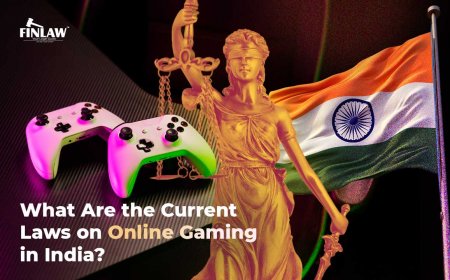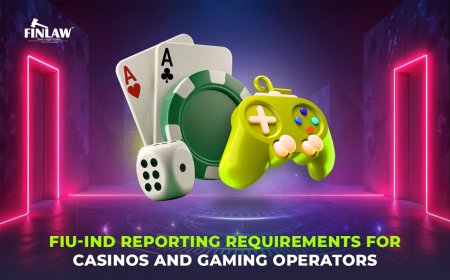How Online Gaming Laws Affect E-Sports Tournaments in India
Discover how India’s online gaming laws affect e-sports tournaments and events. Learn about regulations, legal challenges, taxation, and industry trends.

India’s e-sports industry is booming, driven by a young, tech-savvy population, high-speed internet penetration, and increasing investments. However, the legal framework governing online gaming and e-sports remains complex and fragmented, posing challenges for all stakeholders. This article explores how online gaming laws affect e-sports tournaments and events in India, examining the current legal landscape, regulatory challenges, and the way forward.
Understanding Online Gaming Laws in India
India lacks a unified national law specifically addressing online gaming or e-sports. Instead, the sector is governed by a patchwork of central and state regulations, making compliance a complex issue.
Key Legislations:
-
Public Gambling Act, 1867: This colonial-era law prohibits operating and visiting gambling houses. However, it does not specifically mention online gaming or e-sports, leading to varied state-level interpretations.
-
Information Technology Act, 2000: Although not directly focused on gaming, this act governs digital transactions and cyber activities, including provisions for online gaming platforms.
-
State-Specific Laws: States like Sikkim, Nagaland, and Meghalaya have enacted laws distinguishing between ‘games of skill’ and ‘games of chance.’ Skill-based games are permitted under licensing, while chance-based games are often banned or restricted.
-
Recent Amendments to IT Rules (2023): The Ministry of Electronics and Information Technology (MeitY) introduced new rules mandating online gaming platforms to register with self-regulatory bodies (SRBs) and implement grievance redressal mechanisms. These rules aim to standardize the online gaming ecosystem, ensuring better user protection and platform accountability.
-
GST Implications: Online gaming companies, including those operating e-sports tournaments, are now subject to 28% GST on the full value of bets placed. Although e-sports is largely skill-based, the lack of clarity on tax applicability sometimes places tournament organizers under scrutiny.
Legal Classification: Game of Skill vs Game of Chance
The classification of a game as either ‘skill-based’ or ‘chance-based’ has significant legal implications:
-
Skill-Based Games (e.g., e-sports titles like Dota 2, FIFA, Valorant): Usually allowed and protected under Article 19(1)(g) of the Indian Constitution (Right to practice any profession).
-
Chance-Based Games (e.g., roulette, slot games): Often considered gambling and prohibited in most states.
Since most e-sports are competitive and skill-based, they fall under a safer legal umbrella. However, the lack of specific legislation creates uncertainty.
How Online Gaming Laws Impact E-Sports Tournaments in India
1. Event Organization and Licensing
Organizing e-sports tournaments in India often requires navigating through a maze of permissions, especially if prize pools are involved. States like Maharashtra and Karnataka have not yet created a clear policy for e-sports-specific licensing, leaving organizers to interpret existing laws. The lack of a streamlined approval process often leads to delays and legal risk.
2. Cross-State Compliance
E-sports tournaments that span multiple states must comply with varying laws, which could prohibit the event in one state and allow it in another. For example, Tamil Nadu once banned online gaming platforms, creating obstacles for regional e-sports events. This inconsistent regulation makes it challenging to plan national-level tournaments.
3. Sponsorship and Monetization
Brands are cautious about associating with tournaments that could potentially fall foul of gambling regulations. The ambiguity deters foreign and domestic investment in Indian e-sports. Without legal recognition and safeguards, sponsors may prefer to invest in overseas markets with clearer regulatory pathways.
4. International Participation
Due to India’s inconsistent regulatory environment, international e-sports organizers may hesitate to include India in their tournament circuits. Compliance with domestic online gaming laws adds complexity. Visa and tax complications for foreign participants further deter global e-sports collaboration.
5. Prize Distribution and Taxation
With the introduction of a flat 30% tax (TDS) on winnings above ₹10,000, e-sports players often face financial uncertainty. Organizers must also ensure tax compliance, affecting overall prize pool planning. The lack of clarity on GST and TDS applicability to e-sports adds another layer of complexity.
6. Content Regulation and Streaming
E-sports tournaments are often streamed live on platforms like YouTube and Twitch. Content moderation rules under the IT Act require platforms and organizers to monitor and take down objectionable content. This places an additional regulatory burden on tournament organizers, especially when streaming across multiple jurisdictions.
Government Initiatives and Industry Pushback
MeitY Guidelines (2023-2024)
-
Platforms must comply with KYC norms.
-
In-game purchases must be transparent.
-
Advertisement of real-money games must follow strict disclosures.
-
Violations can lead to takedown of platforms or blacklisting.
State Government Initiatives
-
Maharashtra: Considering a comprehensive policy for online gaming that includes e-sports.
-
Karnataka and Tamil Nadu: Have seen legal battles between state authorities and gaming companies.
Court Rulings in Favor of E-Sports and Online Gaming
Several High Courts, including the Madras High Court and Karnataka High Court, have ruled that games of skill cannot be equated to gambling. These rulings favor the growth of e-sports but lack pan-India enforceability. A Supreme Court verdict or central legislation would bring much-needed clarity.
Role of Industry Bodies and Self-Regulation
All India Gaming Federation (AIGF):
Provides certification for skill-based platforms and helps set standards for fair play and responsible gaming. It also acts as an advocacy group for regulatory clarity.
Electronic Sports Federation of India (ESFI):
Promotes e-sports as a legitimate career option and collaborates with international e-sports bodies. The ESFI organizes national championships and lobbies for e-sports recognition under sports policy.
Federation of Indian Fantasy Sports (FIFS):
Actively advocates for legal clarity and standardization in the gaming space, though more focused on fantasy sports.
Self-Regulatory Bodies (SRBs):
MeitY has introduced the concept of SRBs to bring order and transparency. These bodies may soon play a larger role in certifying and monitoring e-sports platforms.
Challenges Facing the Indian E-Sports Ecosystem
-
Legal Ambiguity: Inconsistent interpretation of laws across states.
-
Low Awareness: Lack of understanding among policymakers about e-sports as a distinct category from gambling.
-
Inadequate Infrastructure: Shortage of dedicated e-sports arenas and trained professionals.
-
Slow Policy Reform: Existing laws are outdated and not suitable for the fast-paced digital gaming world.
-
Tax and Compliance Burden: Multiple taxes and compliance requirements deter smaller tournament organizers and independent streamers.
Roadmap for Regulatory Clarity and Industry Growth
-
A National Framework: India needs a centralized Online Gaming and E-Sports Act to provide consistency.
-
Licensing Authority: A dedicated licensing body for e-sports and skill-based gaming could streamline approvals.
-
Youth Protection: Clear guidelines to prevent underage participation, gambling addiction, and cyberbullying.
-
Taxation Reforms: Uniform and reasonable tax policies will encourage more participation and investment.
-
Public Awareness Campaigns: Educating the public and policymakers about the legitimacy and benefits of e-sports.
-
Government Recognition: Recognizing e-sports as part of the official sports ecosystem, as seen in countries like South Korea and China.
Conclusion
The evolution of online gaming laws in India is gradually shaping the future of e-sports. While most e-sports titles qualify as games of skill, the lack of unified regulation poses operational and legal hurdles. A forward-thinking legal framework that distinguishes e-sports from gambling and facilitates ease of doing business can place India on the global e-sports map.
Until such reforms are implemented, organizers, players, and investors must tread carefully—navigating legal uncertainties while pushing the boundaries of India’s digital gaming potential. With supportive policy changes, India could become a dominant player in the global e-sports arena.
What's Your Reaction?



















